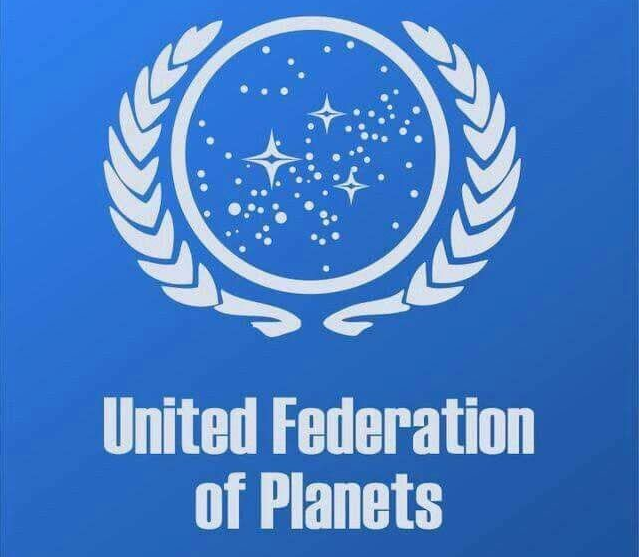Civilian Bureaucrats
Civilian Bureaucrats
Administrative Ethnicity | Federation Civil Service, Planetary Governance, Interstellar Liaison Networks
Overview
“Civilian Bureaucrat” is less a job and more a lifestyle — one defined by access, interpretation, and influence. These are the administrators, schedulers, auditors, policy drafters, and diplomatic attachés who keep the Federation and its allied governments functioning at scale.
Often derided as obstructionist or irrelevant, bureaucrats are, in truth, the nervous system of civilization. They don’t set law or policy — but they enforce it, reinterpret it, and sometimes, lose it in translation just long enough to alter the course of events.
In a galaxy where perception is power, civilian bureaucrats shape what’s seen, what’s said, and what’s signed. And in the darker corridors of Shadows of the Galaxy, some have become tools, allies, or victims of more clandestine agendas.
Origins & Background
The Civilian Bureaucracy evolved as a response to the Federation’s vast scale and diplomatic complexity. Member worlds maintain sovereignty, but interface with the Federation through layers of civilian governance — departments, liaisons, regulators, and legal interpreters.
Bureaucrats are typically drawn from:
- Core Federation worlds (Earth, Bolarus, Alpha Centauri)
- Mid-tier administrative colonies where diplomatic training begins early
- Former diplomats or ex-Starfleet personnel transitioning into civilian oversight roles
Some come from non-Federation governments, such as the Romulan Free State, Ferengi Commerce Authority, or Trill Symbiosis Commission, bringing their own cultural flavors to bureaucratic function.
Ethnic-Cultural Identity
- Bureaucrat as Caste: On some worlds, particularly older Federation members, bureaucracy has evolved into a hereditary class. Generations of families serve in various branches, their prestige tied not to wealth or power, but to their influence on process.
- Logic-First Culture: Bureaucrats value documentation, rational policy, and process above intuition or charisma. In many ways, they are the opposite of diplomats—they speak for the rules, not the heart.
- Loyal to Stability, Not Leaders: Most bureaucrats do not idolize Admirals or politicians. Their loyalty is to the institution—the Federation as a legal concept, not a personal ideal.
Traits and Behaviors
- Neutral on the Surface: Even corrupt bureaucrats rarely display passion. Their power comes from calm dismissal or procedural paralysis.
- Masters of Delay: A seasoned bureaucrat can stop an invasion with a missing requisition form—or a misclassified warp signature.
- Ethical Fluidity: While most civilian bureaucrats believe in the greater good, many have been forced to compromise—or become unwitting accomplices in Section 31 or foreign interference operations.
Post-Dominion Shift
The Dominion War changed the civilian bureaucracy:
- Emergency measures rewrote long-standing procedural norms.
- Black budgets were normalized. Oversight weakened.
- Section 31 used bureaucratic camouflage—civilian contractors, plausible deniability, hidden registry codes—to embed operatives deep within Federation logistics.
Now, many bureaucrats carry the guilt or confusion of having enabled warfare by omission.
Heimdahl Relevance
- Shadow Paper Trails: The Heimdahl relies on bureaucratic ghosts — transport codes, fake manifests, diplomatic immunities issued by real clerks… who never knew what they were signing.
- Crew Conflict Potential: A civilian liaison may insist on “protocol” in a crisis, slowing action—or be the only one who knows how to slip through red tape.
- SWAI(Nyx) and Bureaucracy: Likely distrusts them. After all, his protocols were once sanctioned by paperwork he never authored.
Cultural Identity Tags (For Character Creation)
- Species: Any
- Cultural Identity: Civilian Bureaucrat
- Common Traits:
- Procedural Mastery: +1 to tasks involving logistics, regulations, or diplomatic clearances
- Disarmingly Unimpressive: Often overlooked in security scans or social dynamics; perfect for espionage or subversion
- Process Before Passion: Must pass a Will save to ignore protocol in critical moments — unless another character inspires them
Sample NPCs
- Arvett Telra (Bolian) – Mid-level logistics coordinator for the Bajoran Relief Authority. Knows exactly which shipments "never arrived" and why.
- Petar Mnyov (Human) – Starfleet defector turned whistleblower. Carries a fragment of a Section 31 budget approval form and three forged identities.
- Revik Oss (Vulcan) – Federation planetary auditor. Quietly rewriting first contact protocols after an unknown species claimed “paperwork protected them” from Starfleet.


Comments